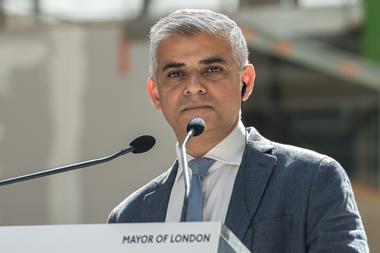While the election has caused huge uncertainty in Westminster, we must remember that political drama does not always translate to upheaval in the property investment market.

So what are investors thinking? Are you a bull or a bear, and to what extent will the market now recalibrate?
Let’s focus on a high-level snapshot of the market today, both positive and negative, and what may change in the next six to 12 months.
First, let’s look at the market positives. There is a 400- to 500-basis-point yield gap between the risk-free rate (10-year gilts 1.11% on 31 May) and average property yields (say 5.5%), making property a compelling case for investors. At the same time, substantial domestic and global cross-border equity is chasing limited stock.
There is also potential for prime yields to harden, particularly for annuity-type stock. There is now rightly greater focus by investors on the true rental level, rental growth prospects and equivalent yields. Over-rented property is being discounted more.
Private investment market growth is set to continue. It accounts for around 28% of all UK purchasers and there is scope for it to rise further as investors seek new homes for their wealth. Overseas buyers are enjoying a 15% discount due to the relative weakness of the pound.
We also see substantial potential for the growth of specialist/alternatives sectors. We estimate that within five years the private rented sector will be the third dominant mainstream commercial sector, along with offices and retail.
So for all the recent turbulence, we continue to provide one of the most transparent and secure investment platforms in the world. However, there are also negatives we must not shy away from.
The downsides
There is a lack of motivated vendors. We are also seeing uncertainty surrounding the capital restrictions controlling the exportation of mainland Chinese equity. If the Hong Kong route is also restricted, the demand for trophy stock in the central London market could look very thin.
While accretive asset management is key - and income return dominates - it is not surprising investors are looking to switch to the more opportunistic arenas of refurbishment, redevelopment and reconfiguration.

And with the average discount to NAV within the listed property sector standing at about 17.9%, the implied yield discount on property translates to around 60 basis points. Some sovereign wealth funds and core investors are therefore turning their attention to the equities markets rather than direct property.
So what is our prognosis? Let’s promote the argument that last week’s unexpected election outcome could be good for property in the UK. A second Scottish independence referendum is now unlikely and it is increasingly probable we will see Britain remain inside the customs union, with a long-term transitional deal softening the impact of Brexit on business.
While some prime yields might continue to harden, poorer secondary will soften. No doubt a number of institutional investors will recalibrate their weightings into property.
We expect a quiet, reflective summer with a substantial increase in activity in the last four months of the year. Since the pound is still weak, there is every chance that overseas investors and a number of institutional investors will be out in force in a busy final quarter.
Politics has never been a big driver in property and despite the current turmoil it is unlikely to depress the market now.





























1 Readers' comment